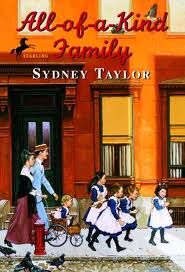I was scrolling through last year’s Passover posts and found this. We’re not going to my mom’s this year, but the issues we confront are the same every year. More about this year’s solution, and how we maintain a loving, respectful marriage despite our radically different feelings about Passover after the seders are over. Until then, I’ll be putting up a few oldies but goodies.
“What matters?” Zoe likes to ask, her arms held up in the universal child-asking-a-question gesture. She thinks it means “what’s the difference?” To me, she sounds just like Yenta in Fiddler on the Roof whenever she says it, most often after I correct her pronunciation of a word. ( “Shrimp, shrump,” she shrugs. “What matters?”)
In the weeks leading up to Passover, I’ve been thinking a lot about what matters. Many years ago, I lived a life bound quite closely by halacha, Jewish law. While there were still decisions to make, many choices were cut and dry, and didn’t involve much weighing of personal priorities. I did things they way they were supposed to be done, and the way so many other Jews around me were doing. This life worked well for me when I lived on the Upper West Side, in a vibrant community of really thoughtful and relatively diverse observant Jews. But when I moved to a small Jewish community with very few observant Jews, I began to feel a need to balance my need for community with my love of (many parts of) traditional Judiasm. (What did it mean to keep shabbat all alone? What level of kashrut did I want when I no longer had to worry about who would and wouldn’t eat in my house?) When I married and started a family with a non-Jewish man, and essentially cast my lot outside of the traditional community forever, the questions became both more complicated and more urgent.
Passover has always been one of the more challenging times of year for my husband and me as an interfaith couple, as I wrote about here, for interfaithfamily.com. It’s not just the 8 days of no beer in the house, although it is some of that. More accurately, it’s the many layers of metaphor tucked away in those forbidden beers. As much as I love my husband, and though there are probably hundreds of mitzvot I do not manage to observe, I can’t seem to let go of, or even ease up on, my strict observance of Passover.
So this year, I decided to make thing easy for all of us. I’m working full time, teaching at a day school, which means I have the whole holiday off, as does my older daughter. So, I thought, let’s go to Bubbe’s for Passover. A great plan – no kashering the kitchen, no Passover shopping, and lots of quality family time. But, no Papa for the whole holiday??? That didn’t seem right to me. So, I re-thought, let’s do seders here and then go to Baltimore. But, well, my brothers were going to be at my mom’s and I wanted them to see the girls too. So, I re-re-thought, let’s have one seder here and then go to Bubbe’s.
Our final version of the Passover plan has left me having to make what feels like a million big and small decisions. Should I travel on Yom Tov so that we can be with both my husband and my family of origin? (yes.) Do we accept the invitation to a first seder with friends I really want to be with, but don’t keep Kosher for Passover as strictly as I do (yes, but I’m bringing some of the required foods and a main dish double wrapped in foil.) Do I change over and kasher our kitchen for one day of Passover? (yes, but only the bare minimum of things I will be using. One day of paper and plastic seems only a wee bit environmentally sinful.)
As the one and only partner who really cares about how Judaism is practiced in our home, every decision is in my hands. And because I don’t feel obligated to halacha above and beyond all other values, each decision, each glass, each mug and each crumb, and what I do with them, is complicated. And fraught with a lot of hand wringing. And, somewhat inexplicably, guilt. It was so much easier when I was a “good Jew.” But I am learning a lot about….what matters. To me, anyhow.
ps, Here we are, one big happy family, searching for chametz. For the first time, at their request, the girls hid four of the pieces Keith and I to find. They loved helping us try to find theirs, but hadn’t quite reconciled their divergent definitions of “hot” and “cold.” Most often, we were both. At the same time.


